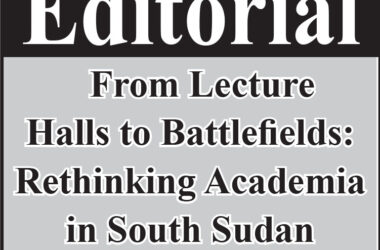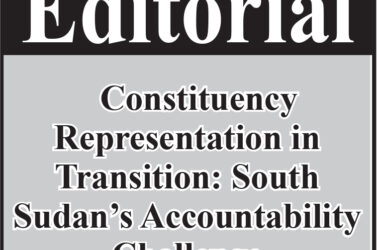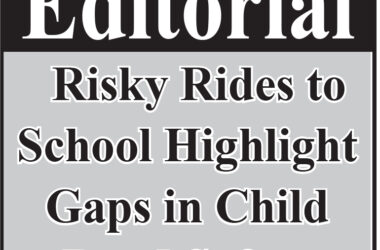Time is money, and therefore restricting traders’ operational hours jeopardizes their opportunities of making sales.
Northern Bahr El Ghazal state should not consider the action of the traders as disregarding orders from authorities but diversification of the economy.
The business community doesn’t make a large population that would cause an alarm, but a minimum figure which actually keeps farmers active on duty by their services.
Compelling a trader to close business until 12:00 PM for cultivation, is denying them chances of selling out their commodities, of which they pay taxes.
In life, there is a division of labour or specialization where an individual does one work while the other does another. In this case, the trader can concentrate on the business but hire others to cultivate, at the end of the day he or she owns a farm.
Not everybody eats from their own farm, some cultivate, and others will buy ready items from the farmers. Both parties benefit from each other.
Though the directive aims to address food insecurity in the state, the response of the traders should not be perceived as negative because it is unfair to close business. Day-to-day life depends on some essentials in possession of the traders, closing till midday, depriving citizens of these basic needs.
The state authority must liaise with leaders of business community to ensure that despite not having time to be in the farms in person, each trader complies by cultivating through other means.
There are other traders who hail from far areas and states, enforcing the order, only upon those from within gives advantage to their colleagues.
The underlying rule in the state order must be that everybody owns a farm, even those who do not hail from the area should hire land and cultivate. This also gives opportunity from the population to get money from traders by renting them farmland, and offering labour, as they work in the farm.
It would be crucial for the state government to review the order to accommodate and cater for the interest of all, without friction and negative perceptions against each other.




